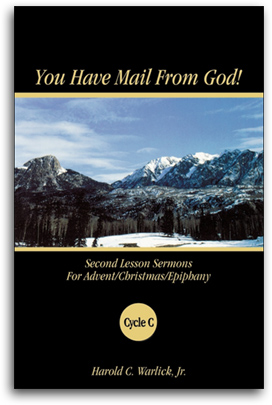SermonStudio
The Next Step
Sermon
You Have Mail From God!
Second Lesson Sermons For Advent/Christmas/Epiphany Cycle C
Paul's letter to the Colossians has a rhythm to it, "put out ... put on." It's a rhythm with which we contemporary Christians can resonate. There is a certain throwing away of past practices that eventuates in every productive life. One year I decided to use the time after Christmas to rid myself of my old clothes. With great zeal I threw the old, out-of-style ties, shirts, sweaters, and pants into the trash. Right there, amid the mangled and torn Christmas wrappings, the faded, dry greenery, and the cracked and broken decorations, sat my old clothes. They no longer served me.


